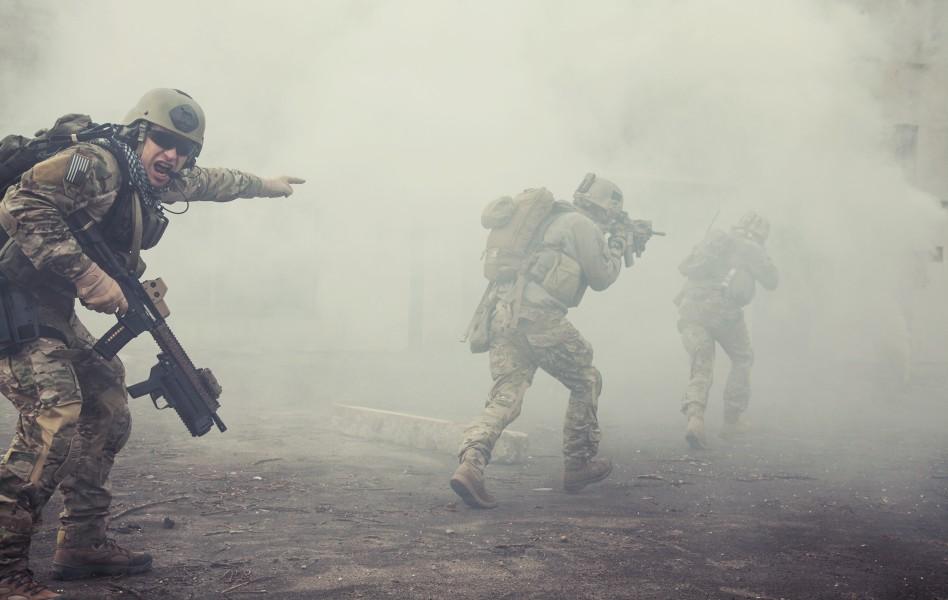“What I come back to is almost embarrassingly simple,” said the London banker, high atop one of the global behemoths. “I think we’ve lived through the golden age of private equity and all types of long duration strategies,” he said. “Holding rates at zero, or negative for that matter, was always going to result in massive capital misallocation.” We see the consequences popping up here and there. “So, when I think about the decade ahead, I just don’t buy the idea that a few regional bank failures have brought the system into balance,” he said. “I don’t know exactly how this plays out, but we’ve got to have at least a few tough years ahead.”
Overall: “This multibillion-dollar corporation has plenty to give American workers - they just don’t want to,” said Sean O’Brien, Teamsters General President. “UPS had a choice to make, and they have clearly chosen to go down the wrong road,” continued O’Brien. The Teamsters represent 340,000 full- and part-time drivers in the US. “Refusing to negotiate, especially when the finish line is in sight, creates significant unease among employees and customers and threatens to disrupt the US economy,” UPS said in response to the breakdown in talks. The company transports more than 3% of global GDP and about 6% of US GDP daily. “The National Retail Federation is disappointed by the breakdown in negotiations earlier today…avoiding a strike or other disruptions as we enter the peak shipping season for the holidays is critical for retailers,” said the Federation’s head of supply chain and customs policy, urging the company and the union to continue talks to avert a strike. Labor has found itself in a power position for the first time in decades. But wages still trail inflation. For the pendulum to properly swing away from capital and back toward labor, the latter must win a larger share of the economic pie. Retired workers are already claiming their larger share from the government. America’s 66mm Social Security recipients received a benefit increase of 5.9% in 2022 and another 8.7% this year. But for inflation to really self-sustain, or even accelerate, private sector wages need to lead the way. “It is not left for the Teamsters to save this company; we have given enough,” said the Teamsters General President O’Brien last month when calling off negotiations with Yellow, a national trucking company facing bankruptcy. Yellow employs 22,000 Teamsters. “What happens next is out of our control,” added O’Brien. Twelve days later he tweeted the picture of a tombstone: Yellow, 1924-2023.
Jay Clayton, former SEC Chairman (leader of our advisory council), and Timothy Massad, former CFTC Chairman, published a thoughtful piece on a common-sense way forward for regulating crypto markets [here].
Marcel Kasumovich published a great piece on the race to launch a spot bitcoin ETF and how infrastructure providers will be the big winners [here].
Week-in-Review: Mon: Saudi extends oil production cut of 1m BPD through August, China announces restrictions of some metals in retaliation of US limiting chip exports, TSLA beats sales expectations, China Caixan Mfg PMI 50.5 (50.0e), Indonesia CPI 3.52% (3.62%e), Japan Tankan 13.4% (10.0%e), Europe Mfg PMI (final) 43.4 (43.6e), US Construction Spending MoM 0.9% (0.6%e), US ISM Manufacturing 46.0 (47.1e), S&P +0.1%; Tue: 4th of July holiday in the US, Greece to make early repayment on 2y of bailout debt, S. Korea CPI 2.7% (2.8%e) / Core CPI 4.1% (4.3%p), Brazil IP 1.9% (1.3%e), S&P closed; Wed: RBA leaves rates unch (50/50 chances of 25bp hike priced), Fed minutes show that ‘some’ favored a hike but went along with a pause / almost all officials expect more increases in ’23, BCB appoints close Lula ally Galipolo to board, China Caixin PMI Services 53.9 (56.2e) / comp 52.5 (55.6p), France IP 2.6% (0.6%e), Turkey CPI 38.21% (38.85%e) / Core CPI 47.33% (47.60%e), EU PMI (final) serv 52 (52.4e) / comp 49.9 (50.3e), EU PPI -1.5% (-1.3%e), Mexico Gross Fixed Investment 6.1% (6.5%), US Factory Orders 0.3% MoM (0.8%e), US Durable Goods Orders 1.8% MoM (1.7%e), S&P -0.2%; Thu: Yellen travels to China, Poland CB leaves rates unch as exp, Malaysia CB unch as exp, UK looking to reverse MIFID2 ban on free research for clients, carry trade gets hit, Germany Factory Orders -4.3% (-9.7%e), EU ret sales -2.9% (-2.7%e), US ADP 497k (225k exp), US Init Claims 248k (245k exp), US JOLTS openings 9.824m (9.9m exp) / quits 4.015m (3.765m prev), US ISM Serv 53.9 (51.2e), S&P -0.8%; Fri: US NFP 209k (230k exp / whisper higher following Thursday’s strong ADP) / unemp 3.6% (3.7%e) / AHE 4.4% (4.2%e), China fines ANT group $1.1b (less than exp), Tax reform bill passes through Brazilian house with decent support across parties, Japan Labor Cash Earnings 2.5% (1.2%e), Japan leading index 109.5 (97.6), Germany IP 0.7% (0.5%e), China Foreign Reserves $3.193t ($3.18t exp), Mexico CPI 5.06% (5.04%e) / Core CPI 6.89% (6.86%e), Canada emp chg 59.9k (20.0k exp) / unemp 5.4% (5.3%e), S&P -0.3%.
Manufacturing PMI (high-to-low): India 57.8 (previous month 58.7), Russia 52.6 (prev mth 53.5), Indonesia 52.5/50.3, Greece 51.8/51.5, Turkey 51.5/51.5, Mexico 50.9/50.5, China 50.5/50.9, Hong Kong 50.3/50.6, Japan 49.8/50.6, Singapore 49.7/49.5, Canada 48.8/49, South Africa 48.7/47.9, Spain 48/48.4, Norway 47.96/47.36, South Korea 47.8/48.4, Brazil 46.6/47.1, UK 46.5/47.1, Vietnam 46.2/45.3, US 46/46.9, France 46/45.7, Poland 45.1/47, Switzerland 44.9/43.2, Taiwan 44.8/44.3, Sweden 44.8/40.7, Hungary 44.2/57.1, Netherlands 43.8/44.2, Italy 43.8/45.9, Czech Republic 40.8/42.8, Germany 40.6/43.2, Austria 39/39.7. Services PMI: India 58.5/61.2, Russia 56.8/54.3, Ireland 56.8/57, US 54.4/54.9, Germany 54.1/57.2, Japan 54/55.9, China 53.9/57.1, UK 53.7/55.2, Spain 53.4/56.7, Brazil 53.3/54.1, Italy 52.2/54, Australia 50.3/52.1, France 48/52.5, Sweden 46.1/49.2.
Weekly Close: S&P 500 -1.2% and VIX +1.24 at +14.83. Nikkei -2.4%, Shanghai -0.2%, Euro Stoxx -3.1%, Bovespa +0.7%, MSCI World -1.4%, and MSCI Emerging -0.9%. USD rose +5.4% vs Russia, +1.8% vs Brazil, +0.9% vs Indonesia, +0.9% vs India, +0.8% vs Chile, +0.2% vs Canada, +0.2% vs Sweden, +0.2% vs Turkey, +0.1% vs Mexico, and +0.1% vs South Africa. USD fell -1.5% vs Yen, -1.1% vs Ethereum, -1.1% vs Sterling, -0.8% vs Bitcoin, -0.5% vs Euro, -0.4% vs China, and -0.4% vs Australia. Gold +0.2%, Silver +1.2%, Oil +4.6%, Copper +0.6%, Iron Ore -1.4%, Corn -0.1%. 10yr Inflation Breakevens (EU +6bps at 2.35%, US +4bps at 2.27%, JP +3bps at 1.10%, and UK -2bps at 3.85%). 2yr Notes +5bps at 4.95% and 10yr Notes +23bps at 4.07%.
Year-to-Date Equities (high to low): Argentina +42.2% priced in US dollars (+109.6% priced in pesos), Greece +40.8% priced in US dollars (+37.5% in euros), NASDAQ +30.5% in dollars, Mexico +27% in dollars (+11.2% in pesos), Poland +25.7% (+16.9%), Ireland +22.1% (+19.2%), Hungary +20.8% (+13.9%), Italy +20% (+17.2%), Chile +18.8% (+12.9%), Brazil +17.9% (+8.4%), Taiwan +15.7% (+17.9%), Spain +15.1% (+12.4%), Germany +14.8% (+12.1%), S&P 500 +14.6%, Japan +14.4% (+24.1%), Euro Stoxx 50 +14.4% (+11.7%), France +12.5% (+9.9%), MSCI World +12.4% in dollars, Netherlands +12% (+9.4%), Denmark +11.3% (+8.9%), Saudi Arabia +10.9% (+10.7%), Czech Republic +10.7% (+6.8%), Korea +10% (+13%), India +6.9% (+6.8%), Russell +5.9%, Sweden +5.8% (+9.9%), Russia +5.4% (+31.5%), Switzerland +5.2% (+1.4%), Canada +4.3% (+2.3%), UK +3.4% (-2.6%), Portugal +3.3% (+0.9%), Colombia +2.7% (-11.9%), New Zealand +2.2% (+4.4%), Austria +2.1% (-0.4%), Indonesia +0.3% (-2%), Venezuela -0.5% (+64.2%), China -1.2% (+3.5%), Australia -1.7% (+0.1%), Philippines -2.6% (-2.9%), Belgium -3.1% (-5.4%), Singapore -3.9% (-3.4%), UAE -6% (-5.9%), South Africa -6.1% (+3.8%), Israel -6.6% (-1.2%), Finland -6.7% (-8.9%), Norway -6.9% (+0.6%), HK -7.5% (-7.2%), Thailand -11.8% (-10.7%), Malaysia -13.1% (-7.9%), Turkey -19.5% (+12.3%).
Aglow: “I keep hearing people say that a wage-price spiral is unlikely because there are fewer labor unions and labor has less bargaining power,” said Lindsay Politi, our inflation PM. “The idea is that workers don’t have the same ability to demand automatic pay increases to keep up with rising costs from inflation today as in the 1970s,” she continued, the two of us at our Bloomberg’s early Wednesday, nerding out before my flight to London. “And as a result, the recent rise in inflation will be less sticky.”
Aglow II: “Union membership has certainly declined dramatically,” said Lindsay. According to the Economic Policy Institute, just over 20% of workers were union members in 1979. Union membership peaked at just over 35% in 1954, was below 30% for the entirety of the 1970s, and now only around 6% of workers are union members. “The labor market, and population make up generally, looks nothing like the 1970s, but in more ways than just union membership,” she said.
Aglow III: “The population is older than in the 1970s with more retirees,” Lindsay said, prices flickering on our Bloomberg’s, greens, reds. “Conventional wisdom is that inflation is especially bad for retirees because they’re on a fixed income. But one of the other things that changed in the 1970s was a cost-of-living adjustment to social security based on CPI.” Retirees’ income isn’t fixed after all. Social Security benefits adjust with inflation. They increased 5.9% in 2022. This year they’re up another 8.7%.
Aglow IV: “Most workers don’t get automatic increases in their income with inflation, but retirees do,” she said. “In 2022 there were 66mm Americans receiving social security benefits and 155mm workers on non-farm payrolls. If we lump these two pools together and call it something like income-receiving Americans, then 30% of Americans are receiving their income from social security, the same as the percentage of workers in labor unions in 1979,” she said. “And the pool of social security recipients is growing quickly as Boomers retire.”
Aglow V: “It creates an inflationary inertia but from government spending,” said Lindsay. Higher inflation has meant larger deficits both from higher interest expenses and from higher mandatory spending because of automatic inflation-linked spending increases. “Another conventional wisdom that I keep hearing is that governments can inflate their debt away but that isn’t easy when so much government spending is explicitly or implicitly linked to inflation.”
Aglow VI: “That all makes sense,” I said. “And there’s no simple solution to dealing with such large government obligations,” I continued. “But inflation is still the most likely path the government takes,” I said. “And that’s because of all the choices, it’s the least painful. A big deflation would spark depression – that’s out. And a return to low inflation amplifies inequality. Political appetite is waning for that. Inflation is the politest policy path to default, with the government trying to boost wages, and corporate America fighting the whole way up.”
Anecdote: “We rarely understand the true source of our success,” said the investor, a serial entrepreneur, a remarkable success. “And having made that first error, we then often extrapolate the misunderstanding forward,” he continued, the two of us catching up, exploring business, life, the struggle. “This leaves us disconnected from what made us great. And we then attempt to live up to an image of what we think others expect us to be. We fall victim to being seduced by the crowd, listening to what the crowd expects from us. And this widens the chasm between who we are and how we’re perceived,” he said. “Our egos and identities become both conscious and subconscious issues that self-reinforce and make it difficult to see ourselves and our organizations clearly,” he said. “The problem can be bad when you run a small organization, but at least at small scale it’s easier to pivot.” Admit mistakes, stem the bleeding, survive, evolve. “But when such people end up running very large organizations, these misunderstandings and the consequences that result become debilitating, even catastrophic,” he reasoned. Of course, this should be the greatest fear of all Founders and CEOs who realize their dreams, and see their businesses defy the odds by succeeding, scaling. “One of my superpowers is that I can change my mind, and I think deeply and honestly about what my skills are, what has led to my successes, failures too.” A frightening number of successes end in failure. But certainly not all of them. The skills and mindset needed to get a venture off the ground often differ from what is needed for the next stage, and various stages that follow. Examining such things objectively, clearly, gives us the best possible chance to make the ascent. “I stay small enough to be able to pivot. I do not hold on to things too long,” he said. “I am happy to move forward, move on.”
Good luck out there,
Eric Peters
Chief Investment Officer
One River Asset Management
Disclaimer: All characters and events contained herein are entirely fictional. Even those things that appear based on real people and actual events are products of the author’s imagination. Any similarity is merely coincidental. The numbers are unreliable. The statistics too. Consequently, this message does not contain any investment recommendation, advice, or solicitation of any sort for any product, fund or service. The views expressed are strictly those of the author, even if often times they are not actually views held by the author, or directly contradict those views genuinely held by the author. And the views may certainly differ from those of any firm or person that the author may advise, converse with, or otherwise be associated with. Lastly, any inappropriate language, innuendo or dark humor contained herein is not specifically intended to offend the reader. And besides, nothing could possibly be more offensive than the real-life actions of the inept policy makers, corrupt elected leaders and short, paranoid dictators who infest our little planet. Yet we suffer their indignities every day. Oh yeah, past performance is not indicative of future returns.





